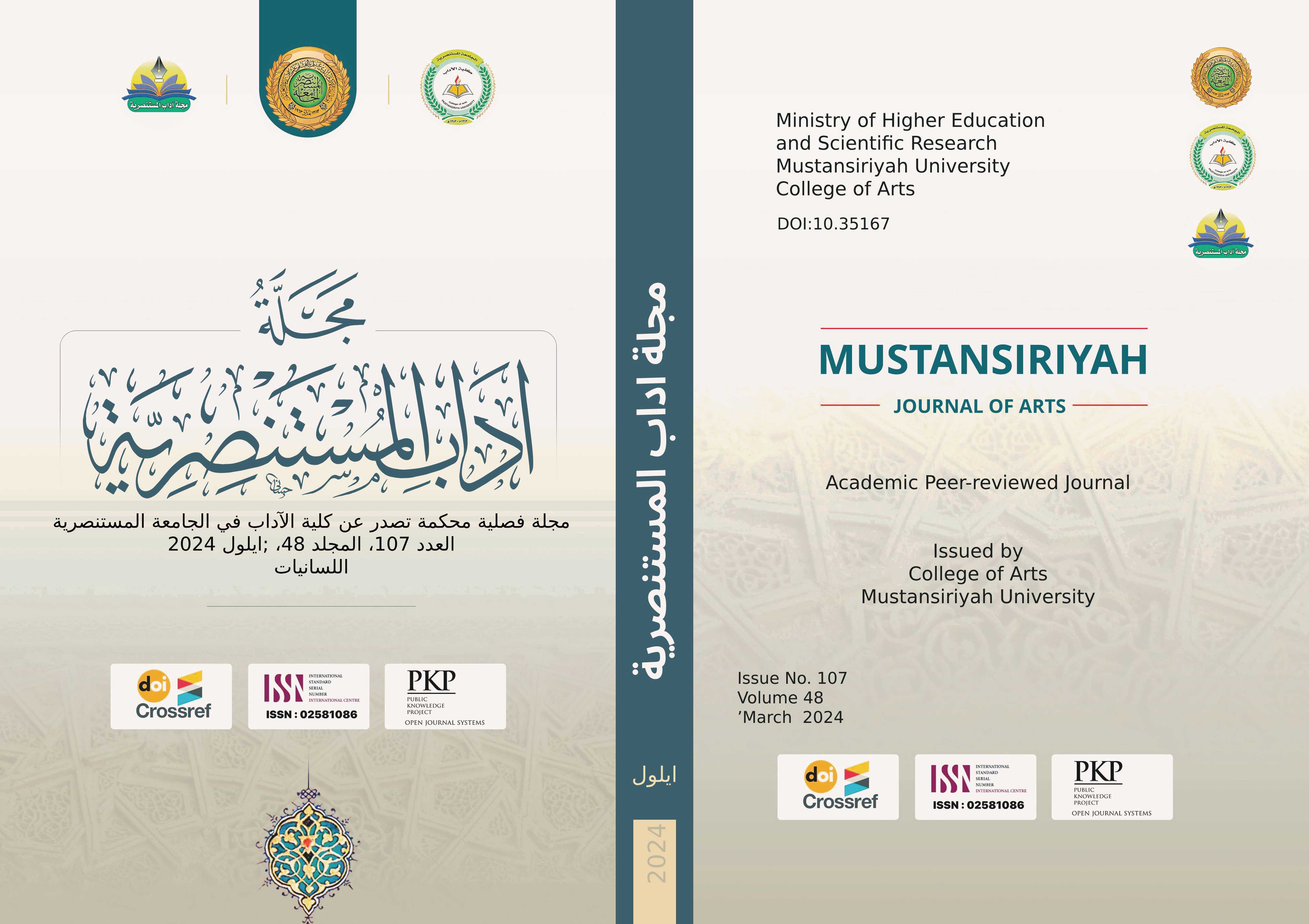Poetic purposes in the poetry of the Wasitis: a rhetorical study
Abstract
Ibn Abi Saqr al-Wasiti is considered one of the unknown poets of the fifth century AH (d. 498 AH). Despite his contact with political figures such as the Dean of the State Ibn Juhayr, Saif al-Din Ibn Sadaqa, and other politicians, historians in the past did not attach importance to mentioning more poetic verses than what we have collected, and we have collected them. His overall poetry was characterized by a variety of purposes, and the most important purposes that we dealt with were (complaining, reproach, and flirtation), as we found him always complaining about advancing age, which made him choose the stick to be his companion in his journey and travel. Indeed, it was his third leg. One of the characteristics of his poetry is the ease of the language used to express it. For these purposes, he also used Al-Badi’s methods, such as repetition, preposition, alliteration, quotation, and inclusion, and quoting from the Holy Qur’an was the most common. As for Ibn Al-Sawadi Al-Wasiti, he is considered one of the poets who left an imprint on Arabic poetry in the sixth century AH in general and Iraqi poetry in particular (d. 566 AH), and he often complained and reproached. Most of his flirtatious meanings revolved around old age and the pain of loneliness that he suffered from. His language was far from complicated, in addition to his skill in using demanding methods such as the question, the call, and the command through which he was able to express what he was complaining about. He also used a group of exquisite arts that achieve A sound symmetry that deepens the external musical reality represented by meter and rhyme, and these arts include repetition, alliteration, foregrounding, good division, and other arts.
Downloads
Published
Issue
Section
License

This work is licensed under a Creative Commons Attribution-ShareAlike 4.0 International License.


